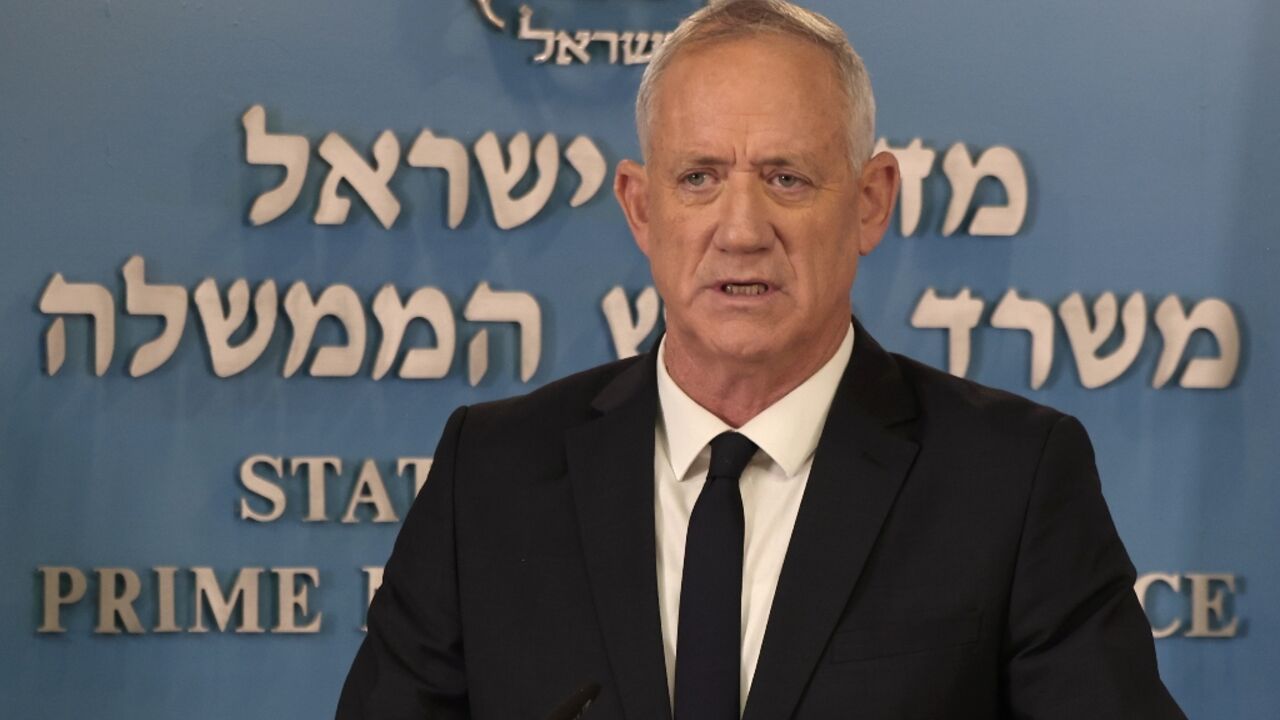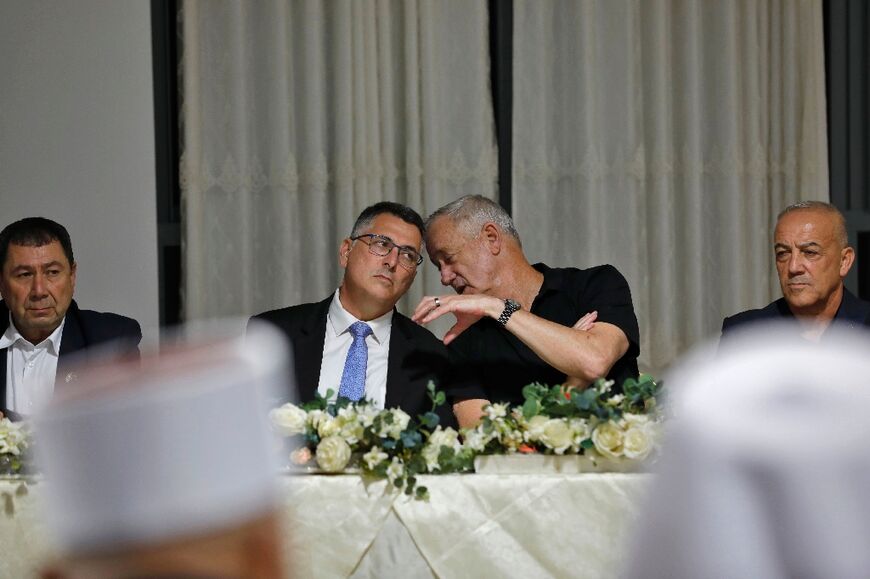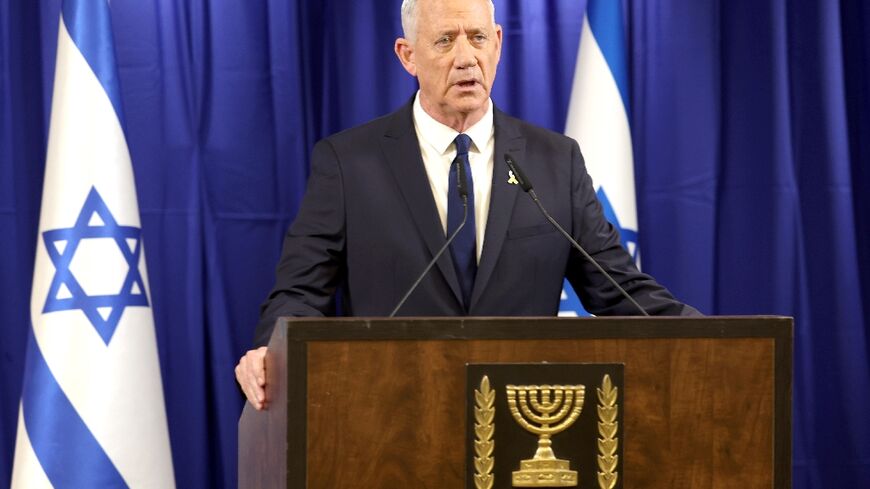Benny Gantz: ex-general eyes PM job again

Israel's Defence Minister Benny Gantz, a former army chief, has put his security credentials at the centre of his latest attempt to become prime minister.
"More than ever, Israel needs leadership with security experience," he has said during the campaign ahead of Israel's election on Tuesday, its fifth in less than four years.
The 63-year-old, an elite military officer with a relaxed, deliberate manner, has been a central player in the effort to lock Benjamin Netanyahu out of power throughout Israel's four years of unprecedented political deadlock.
As head of the centrist Blue and White alliance, Gantz was the top challenger to Netanyahu -- who was nearing the end of a long stint as premier -- during an extraordinary series of three elections in 2019 and 2020.
Blue and White showed well in each vote, but Gantz could never muster a governing coalition.
Following the inconclusive March 2020 vote, with Israelis exhausted by the political deadlock and the pandemic gathering steam, Gantz broke from the anti-Netanyahu coalition.
He formed an alliance with his ex-nemesis, saying "unusual times call for unusual decisions," and citing the need for stability.
That controversial move saw Blue and White splinter into factions.
- 'National Unity' -
Their three-year deal called for Netanyahu to serve 18 months as premier, before handing over to Gantz.
But Netanyahu sank the coalition before the transition.
Gantz insisted he never trusted the man widely known as "Bibi".
He ultimately joined the unwieldy coalition of Netanyahu rivals that took power in June 2021.
The collapse of that precarious arrangement triggered Tuesday's election, and Gantz told AFP that he still regards himself "as a candidate for the premiership."
"I hope to succeed in achieving unity, bringing as many people together as possible, freeing us from the political burden of Netanyahu," he said in an interview Thursday as he flew back from Turkey.
He is running this time in the National Unity alliance with right-wing Justice Minister Gideon Saar.
Both are uncompromising Netanyahu critics, insisting Israel cannot be led by someone on trial for corruption. Polls show National Unity winning around 12 seats.
Such a result could make Gantz a viable contender to lead a new anti-Netanyahu coalition.
Unlike Prime Minister Yair Lapid, who is a committed secularist, Gantz is seen as acceptable to ultra-Orthodox Jewish parties who support Netanyahu but may ditch him if the ex-premier again falls short of a majority.
- 'Benny-huta' -
Gantz was born on June 9, 1959, in the southern village of Kfar Ahim, which his immigrant parents, both Holocaust survivors, helped establish. He is married with four children.
He joined the army in 1977 and went on to command Shaldag, an air force special operations unit.
Standing well over six feet (more than 1.8 metres) tall, he earned the military nickname "Benny-huta", a play on a word meaning "no rush" and reflecting his relaxed character.
In 1994, he returned to the army to command a brigade and then a division in the occupied West Bank.
He was the army's chief of staff from 2011 until his retirement in 2015, working closely with then-prime minister Netanyahu.
In 2014, he commanded the army's operations in the war with Gaza's Islamist rulers Hamas and has boasted of the number of Palestinian militants killed and targets destroyed.
- 'West Bank violence' -
Gantz has kept some of his positions on the Palestinian conflict vague, including his openness to new peace talks.
As Israel's defence minister, he holds direct authority over the occupied West Bank. He has met Palestinian president Mahmoud Abbas several times in recent years and hosted Abbas at his home in December last year.
But he has also overseen near daily Israeli army raids in the West Bank since March, launched in response to deadly attacks targeting Israelis.
Gantz was also defence minister during Israel's May 2021 war against armed groups in Gaza and oversaw a three day Gaza bombardment in August targeting the Islamic Jihad group.
Security vigilance needs to "be constantly maintained," Gantz told AFP on Thursday. "It's not something we're free of."








